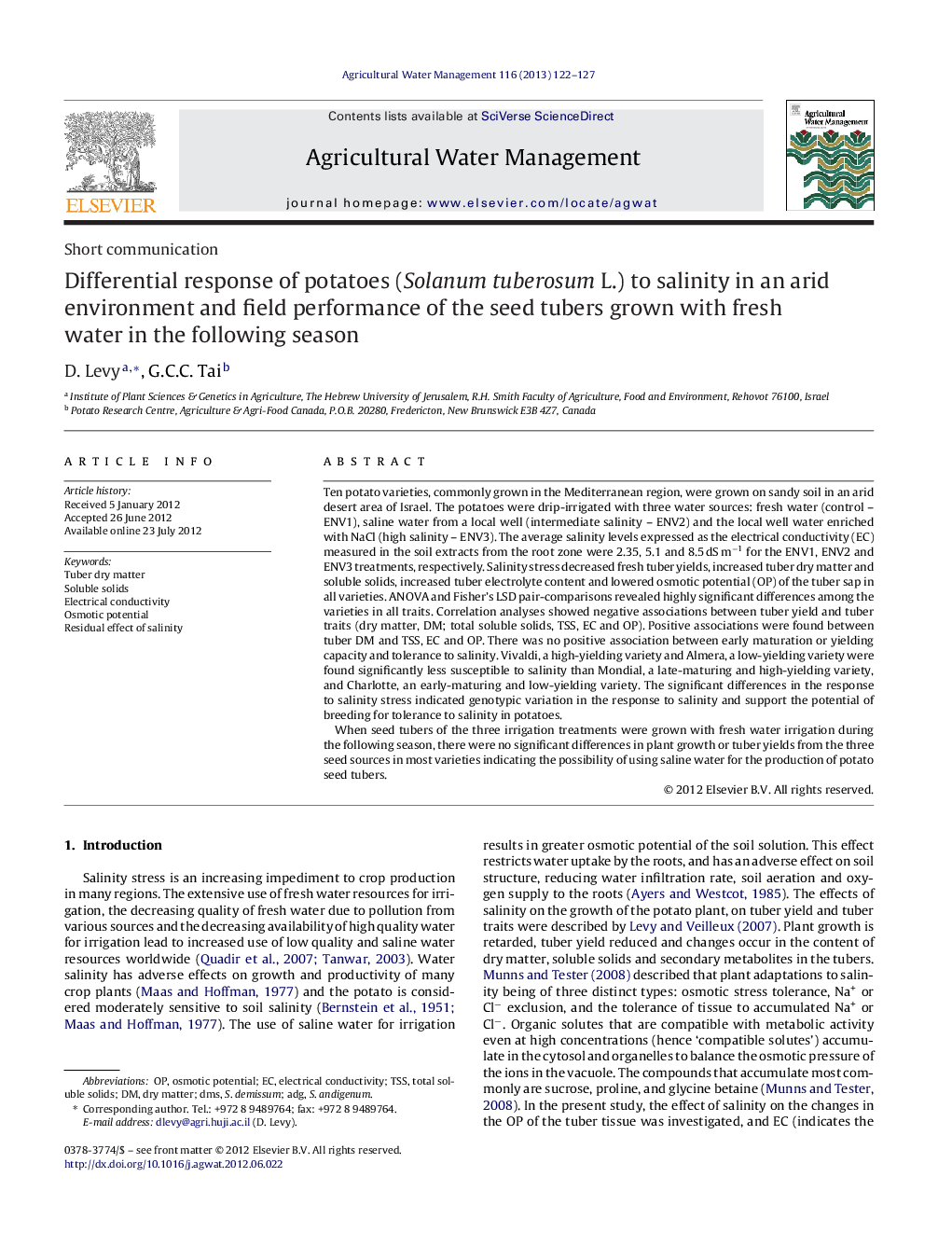| کد مقاله | کد نشریه | سال انتشار | مقاله انگلیسی | نسخه تمام متن |
|---|---|---|---|---|
| 4478972 | 1622963 | 2013 | 6 صفحه PDF | دانلود رایگان |

Ten potato varieties, commonly grown in the Mediterranean region, were grown on sandy soil in an arid desert area of Israel. The potatoes were drip-irrigated with three water sources: fresh water (control – ENV1), saline water from a local well (intermediate salinity – ENV2) and the local well water enriched with NaCl (high salinity – ENV3). The average salinity levels expressed as the electrical conductivity (EC) measured in the soil extracts from the root zone were 2.35, 5.1 and 8.5 dS m−1 for the ENV1, ENV2 and ENV3 treatments, respectively. Salinity stress decreased fresh tuber yields, increased tuber dry matter and soluble solids, increased tuber electrolyte content and lowered osmotic potential (OP) of the tuber sap in all varieties. ANOVA and Fisher's LSD pair-comparisons revealed highly significant differences among the varieties in all traits. Correlation analyses showed negative associations between tuber yield and tuber traits (dry matter, DM; total soluble solids, TSS, EC and OP). Positive associations were found between tuber DM and TSS, EC and OP. There was no positive association between early maturation or yielding capacity and tolerance to salinity. Vivaldi, a high-yielding variety and Almera, a low-yielding variety were found significantly less susceptible to salinity than Mondial, a late-maturing and high-yielding variety, and Charlotte, an early-maturing and low-yielding variety. The significant differences in the response to salinity stress indicated genotypic variation in the response to salinity and support the potential of breeding for tolerance to salinity in potatoes.When seed tubers of the three irrigation treatments were grown with fresh water irrigation during the following season, there were no significant differences in plant growth or tuber yields from the three seed sources in most varieties indicating the possibility of using saline water for the production of potato seed tubers.
► The use of saline water applied by drip irrigation for potato production in an arid climate is demonstrated.
► Significant differences in the response to salinity among cultivated potatoes are shown for the first time under field conditions.
► The production of potato seed tubers with saline water applied by drip irrigation is demonstrated.
► Procedures for the selection of potatoes with improved tolerance to salinity under field conditions are discussed.
Journal: Agricultural Water Management - Volume 116, 1 January 2013, Pages 122–127